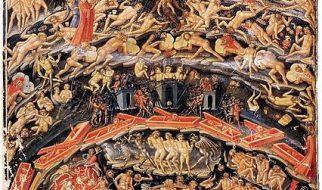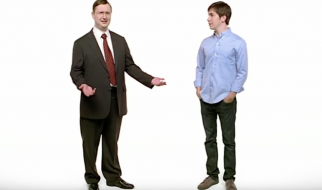
Art imitates life, life imitates art. The Netflix series Black Mirror does an excellent job time and time again reflecting on the trajectory of our current uses of technology, and also giving some disturbing insight on where we might end up in the future.
The most poignant episode of this series that I?ve seen thus far would have to be Nosedive, starring Bryce Dallas Howard as the disingenuously bubbly young woman far too obsessed with climbing the digitally recorded social ladder.
The futuristic tone of this episode is cleverly misleading, as it gives the viewer enough distance from the narrative to pay attention without right away realizing that this dystopian reality is not too far off from the world we live in today.
The platform that drives the protagonist, Lacie Pound, to extreme lengths is reminiscent of Instagram, primarily composed on visual imagery content. However, there is one major difference; in this hypothetical society, people rate each other on a five-point scale based on their everyday in-person interactions. This is, of course, in addition to the same five-point scale used to rate the content posted by each user.
What makes this distinction so interesting is that it takes the social media metrics outside of the platforms on which they appear. Lacie isn?t just rated on what she chooses to post on her account, she?s rated on every interaction she has with anyone, stranger or friend.
This dynamic is a provocative thought experiment; on first consideration it has some merit to it. If everyone has power to give public feedback on us, then surely we would go about our lives being better people, right?
Well not really. Because like any good market-based system, you and I don?t have the same level of influence. In Lacie?s world, ratings from highly rated individuals (4.5 and above) carry much more weight than the ratings of lower valued individuals.
Now while watching this episode, the viewer might initially get the feeling that participating in this ratings-based system is absolutely integral to surviving in society. It isn?t until we see people in Lacie?s life challenging her on her desire to climb into the elite circle, that we realize the entire system relies on everyone believing in it.
This is what struck a chord with me, these numbers are only as meaningful as we let them be. We may not yet be living in Lacie?s type of society, but make no mistake, our social media metrics have a subtle, yet strong, influence on our social lives. As long as we value the vanity metrics: the followers, likes, interactions, and so on, they will control us.
Tell me if you?ve had a similar experience on social media:
Regardless of the quality of my content, the people I?ve had the most positive in-person interactions with (such as my closest friends) will like my post. And along the same lines, my followers with the most social influence will only ever like my highest quality posts, as in I have to actually earn their interaction.
Sounds a lot like the world of Nosedive.
This gets back to my point on valuing the metrics. I don?t let my poor social media standing bother me, because I?m constantly focused on building my social standing in person. I distinctly separate the in-person from the online. And this is what scares me most about Nosedive. When those two social worlds are merged together, which they surely will be in the near future, we?ll all be forced to live our lives in the way which we feel would be most approved by our peers. Talk about inauthentic.
I only hope that our sanity can keep pace with technological evolution.


